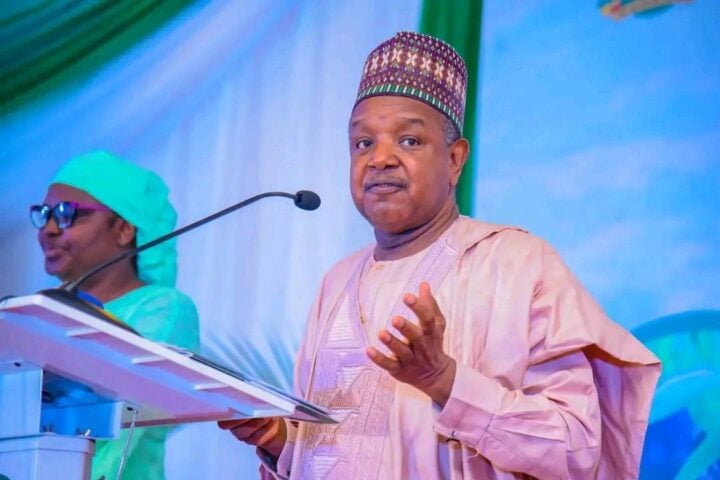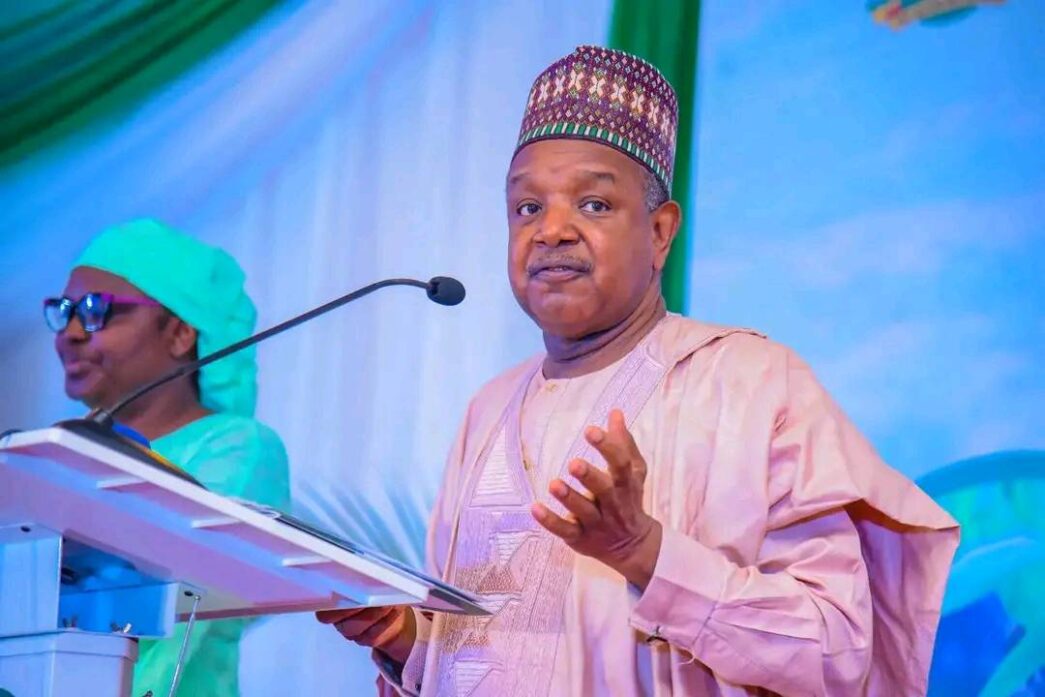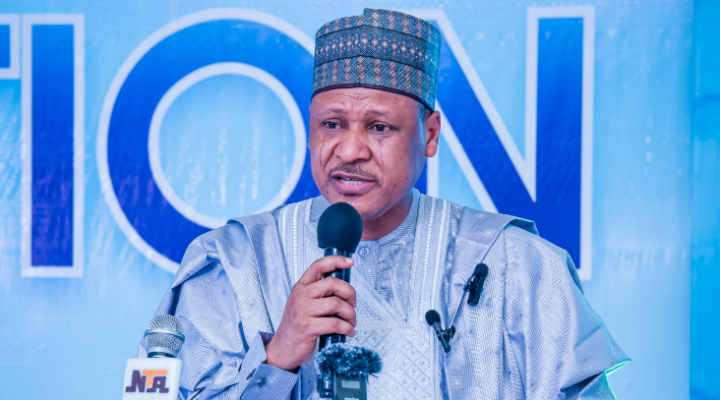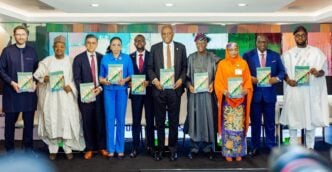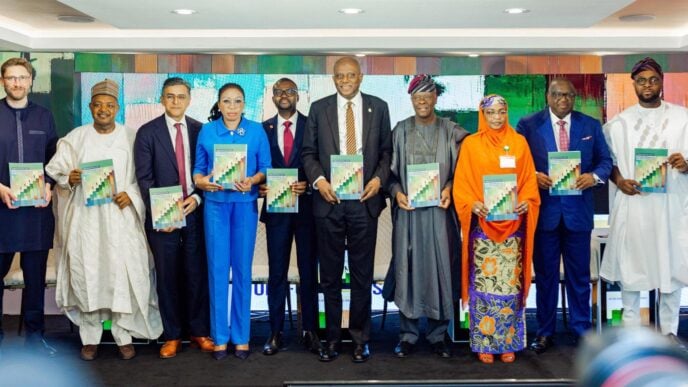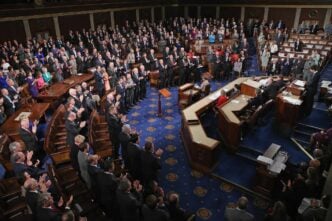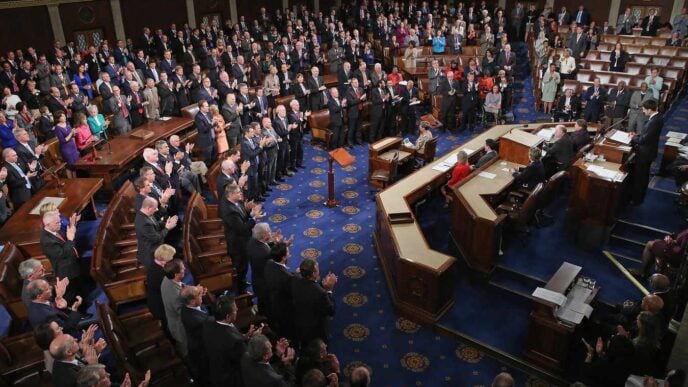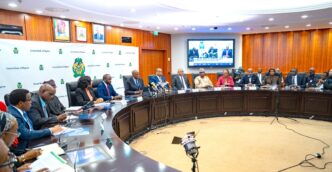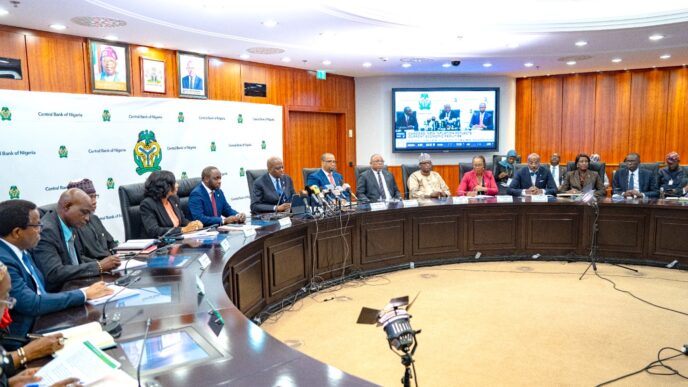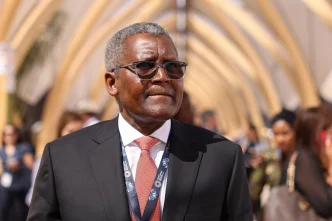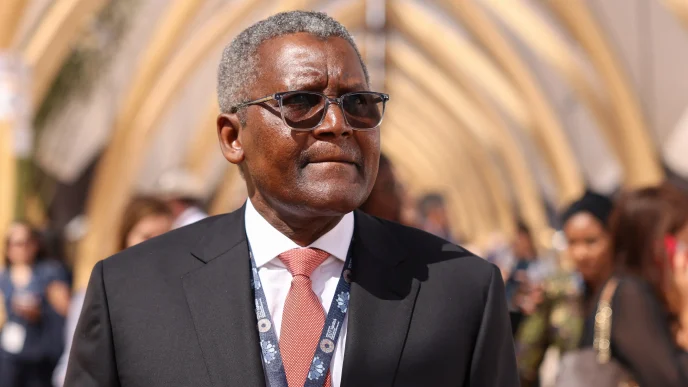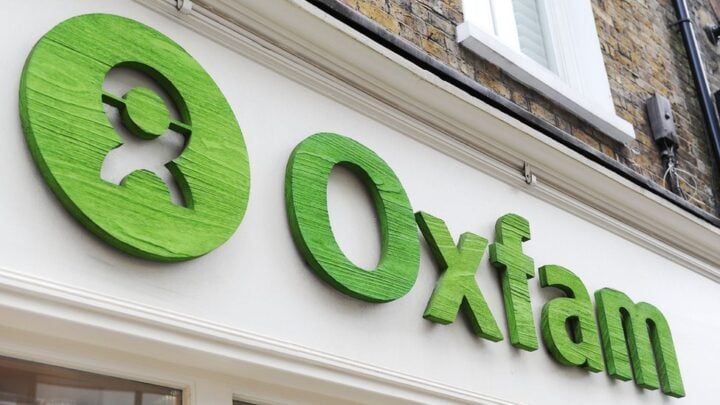Abubakar Bagudu, minister of budget and economic planning, says Nigeria’s rising revenues are linked to adjustments in oil prices.
Bagudu spoke on Monday in Abuja at the launch of the May 2025 edition of the World Bank Nigeria Development Update (NDU), which noted that the federal government’s revenue rose to 4.5 percent of gross domestic product (GDP) in 2024.
The minister said the administration of President Bola Tinubu is committed to boosting development at the grassroots by turning local government areas into centres of economic growth.
Bagudu said the reforms are already producing results, with rising revenues and declining debt levels showing signs of economic improvement.
Advertisement
“If you take the time series backwards, you will see that revenues have historically been adjusted in response to oil prices,” he said.
“There was a time when oil prices were over $100 per barrel, yet some states couldn’t pay salaries. Today, however, we are seeing increased revenues to subnationals and even a reduction in their debt levels — an enhancement of fiscal space that is both notable and necessary.”
He said the federal government is implementing a national programme that would bring all levels of government together to identify economic opportunities across Nigeria’s 8,809 political wards.
Advertisement
“The federal government believed that cash transfers alone would not create jobs. You must identify and cultivate economic potential in each community,” he said.
The minister explained that the initiative would support the broader macroeconomic reforms, and Tinubu would formally launch the project soon.
“This is an inclusive approach. We believe that we can unlock significant growth by focusing on ward-level economic opportunities,” Bagudu said.
Bagudu also said the government must stay focused on delivering prosperity, insisting that budgeting must be based on discipline and accountability.
Advertisement
“We are right to say that the budget must not reflect our indulgences; it must reflect our potential. This journey is nearly two years in, and now more than ever, all organs of government must work harder and smarter to deliver prosperity for our people,” he said.
MAY 2025 NDU VALIDATES EFFECTIVENESS OF NIGERIA’S ECONOMIC REFORM
Bagudu said the latest NDU confirms the impact of Nigeria’s reform strategy.
“This report and its numbers reinforce the fact that the Renewed Hope Agenda is working. The governor of Plateau State rightly emphasised staying the course — not choosing winners, but supporting those who believe in Nigeria’s future,” he said.
The minister also acknowledged recent poverty data but noted that the figures were based on older datasets and did not reflect the current momentum of reforms.
Advertisement
“Yes, the figures are real, but they reflect older datasets, not the current momentum of reforms underway since June 2023. We are not playing the blame game. Mr. President campaigned for this responsibility. We are not where we want to be, but committed to doing more,” he said.
Also, Bagudu commended the National Bureau of Statistics (NBS) for preserving its independence while improving key data areas such as labour figures, the consumer price index, and GDP tracking.
Advertisement
“Institutional credibility is paramount. What matters is that stakeholders are engaged, and that the public understands what these methodological changes mean for our national data,” he said.
He further highlighted the importance of treating investors with seriousness and outlined steps being taken to adjust government policy in real time.
Advertisement
“Our infrastructure aspirations require that we treat willing investors with the seriousness they deserve. We have developed mechanisms to recalibrate policy in real-time, as seen in our recent engagement with stakeholders in the sugar industry,” he said.
“The Coordinating Minister of the Economy remains available to ensure that government performance consistently exceeds expectations.”
Advertisement
Other key figures at the event included Wale Edun, minister of finance and coordinating minister of the economy; Yemi Cardoso, governor of the Central Bank of Nigeria (CBN); Taiwo Oyedele, chairman of the presidential committee on fiscal policy and tax reforms; and Oluyemi Oloyede, managing director of UAC Foods.
State representatives, development partners, and economic stakeholders were also present.
